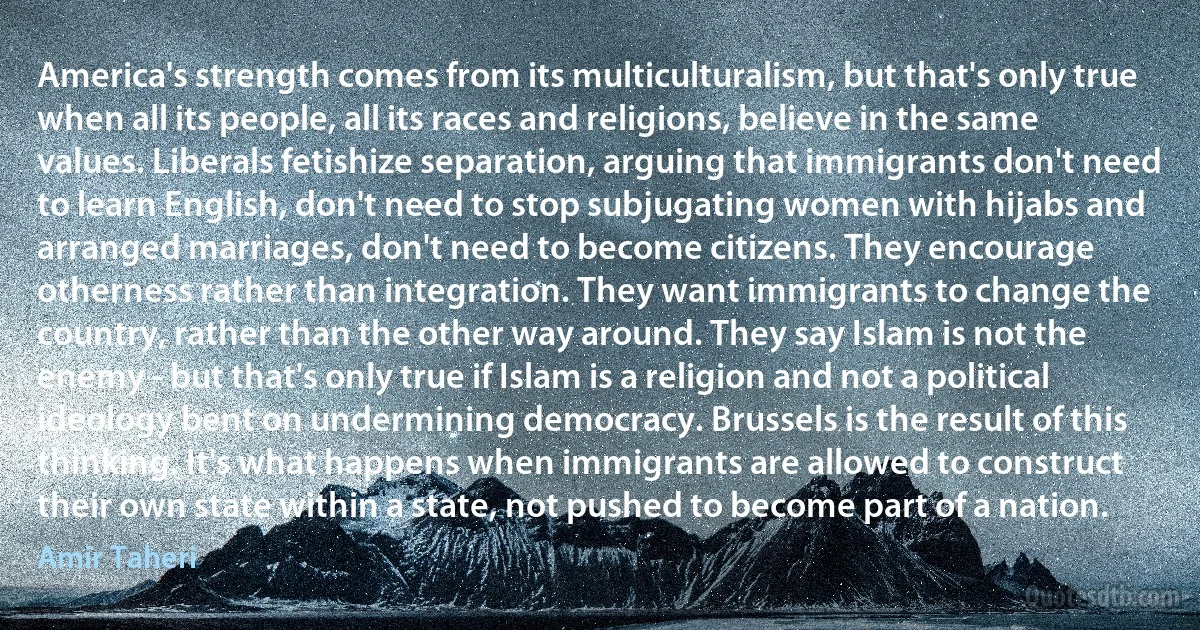Amir Taheri quotes - page 3
The division of the world into two mutually exclusive camps - the City of War and the City of Faith - lies at the heart of Islam's traditional view of existence. Places where Islam rules supreme and its laws are strictly obeyed are known as Dar al-Iman or the City of Faith. The rest of the world is signified under the title of Dar al-Harb or the City of War.

Amir Taheri
Islam says: Whatever good there is exists thanks to the sword and in the shadow of the sword! People cannot be made obedient except with the sword! The sword is the key to Paradise, which can be opened only for the Holy Warriors! There are hundreds of other [Qur'anic] psalms and Hadiths [sayings of the Prophet] urging Muslims to value war and to fight. Does all this mean that Islam is a religion that prevents men from waging war? I spit upon those foolish souls who make such a claim.

Amir Taheri
The Shah described the modernisation of Iran as the principal goal of his life, and yet he adamantly refused to see that there could be no veritable modernisation without democracy. He often referred to his Swiss education as part of his credentials as a profoundly committed democrat, but was, at the same time, convinced that Iran was not yet ripe for democracy, and that it was his duty as 'the father of the nation' to save the Iranians from a slothful life of prayer, pilgrimage, small commerce, backward farming and cottage industry. He also wanted to turn Iran into a second Japan, make her one of the five or six major world powers by the end of the century. He regarded himself as the custodian of Iran's grandeur and freedom and in later years he extended his self-proclaimed mission of saving Iran to include the entire world.

Amir Taheri
Reza Shah was not an atheist and could best be described as an agnostic. He was, for a while, fascinated by the teachings of Zoroaster, Iran's pre-Islamic prophet, but his fascination should be understood in the context of his old soldier's dream of restoring Iran to its ancient grandeur. Mohammad-Reza, on the other hand, was deeply religious, even to the point of rejecting all free will.

Amir Taheri
Reza Shah had been a powerful leader only partly because of his position, and Mohammad-Reza was fully conscious of the fact that he had few of his father's natural assets. The new Shah had received a democratic training which meant that he knew that there were different views on every issue and that reality could be contemplated from many different angles: this made him hesitant and indecisive where his father had been determined and resolute. Mohammad-Reza wanted to be loved for his person: Reza Shah never knew what love was, asking only to be obeyed. The new Shah was polite and shy and anxious not to offend: the old Shah deliberately terrorised members of his entourage in order to keep them constantly on their guard. Reza Shah had been a born leader; the new Shah had to learn to become one.

Amir Taheri

